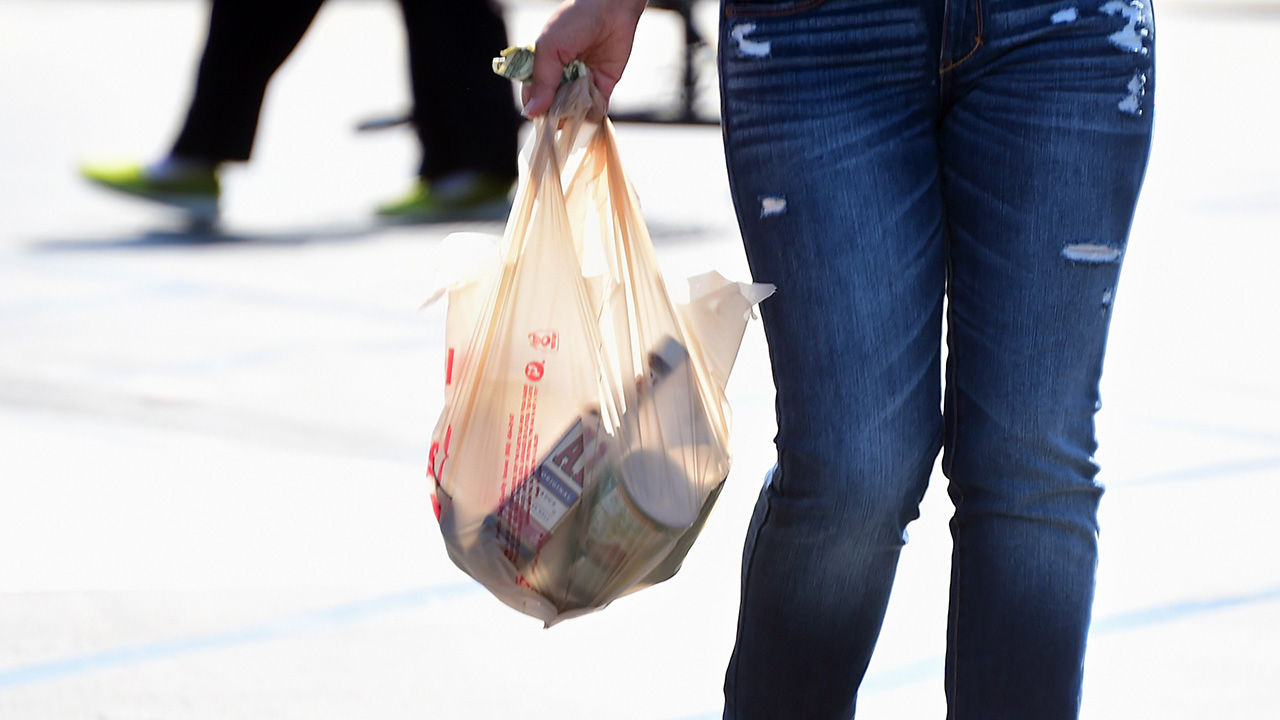California Gov. Gavin Newsom signed a bill on Sept. 22 that will ban the use of all plastic shopping bags by grocery stores in an effort to reduce plastic waste in the state.
The bill, SB1053, will take effect on Jan. 1, 2026. Consumers will be encouraged to bring their own bags for their purchases or use recycled paper bags provided by grocery stores.
State Sen. Catherine Blakespear, one of the bill’s supporters, said SB1053 honors the intent of the original ban on single-use bags, which was passed in 2014 and approved by the state’s voters in 2016. Under the original ban, stores were allowed to provide thicker reusable plastic bags.
Blakespear said that the original plastic bag ban failed to reduce California’s plastic waste and instead contributed to an increase, as most of the thicker bags are not recyclable and are seldom reused.
“I thank Governor Newsom for signing this important legislation that will help protect California’s environment,” she said in a Sept. 22 statement. “It’s time for us to get rid of these plastic bags and continue to move forward with a more pollution-free environment.”
In her previous statement, Blackspear cited a study by CalRecycle, which found that the amount of plastic shopping bags disposed of by Californians grew from 8 pounds per person in 2004 to 11 pounds per person in 2021.
“A plastic bag has an average lifespan of 12 minutes and then it is discarded, often clogging sewage drains, contaminating our drinking water and degenerating into toxic microplastics that fester in our oceans and landfills for up to 1,000 years,” she said.
Plastic bags are made from fossil fuels and do not biodegrade when they end up in landfills, which damages soil quality, according to the California Public Interest Research Group (CALPIRG).
Jenn Engstrom, CALPIRG state director, welcomed the governor’s approval of the legislation, saying that it is time to ban plastic bags in grocery checkout lanes “once and for all.”
“Plastic bags create pollution in our environment and break into microplastics that contaminate our drinking water and threaten our health,” Engstrom said in a statement. “Californians voted to ban plastic grocery bags in our state almost a decade ago, but the law clearly needed a redo.”
The American Recyclable Plastic Bag Alliance has previously opposed the bill, saying that it will not reduce plastic waste because consumers will still be able to purchase “non-recyclable bags made from virgin plastic.”
“These bags will simply be moved from behind the register to in front of it and cost consumers more,” the group stated on social media platform X in July. “On top of that, this bill eliminates important public health provisions that ensure bags are not made with dangerous levels of heavy metals and other toxins, endangering California consumers.”
So far, 12 states—California, Colorado, Connecticut, Delaware, Hawaii, Maine, New Jersey, New York, Oregon, Rhode Island, Vermont, and Washington—have imposed some form of statewide plastic bag ban, according to a report by the Environment America Research & Policy Center.
The report, published on Jan. 17, found that plastic bag bans in five states and cities have reduced single-use plastic bag consumption by about 6 billion bags per year, which it said is “enough bags to circle the earth 42 times.”














